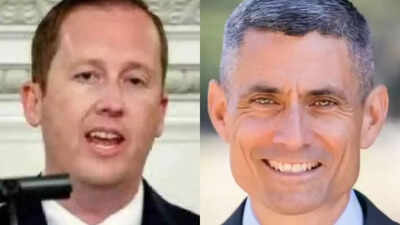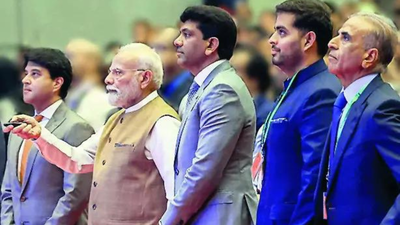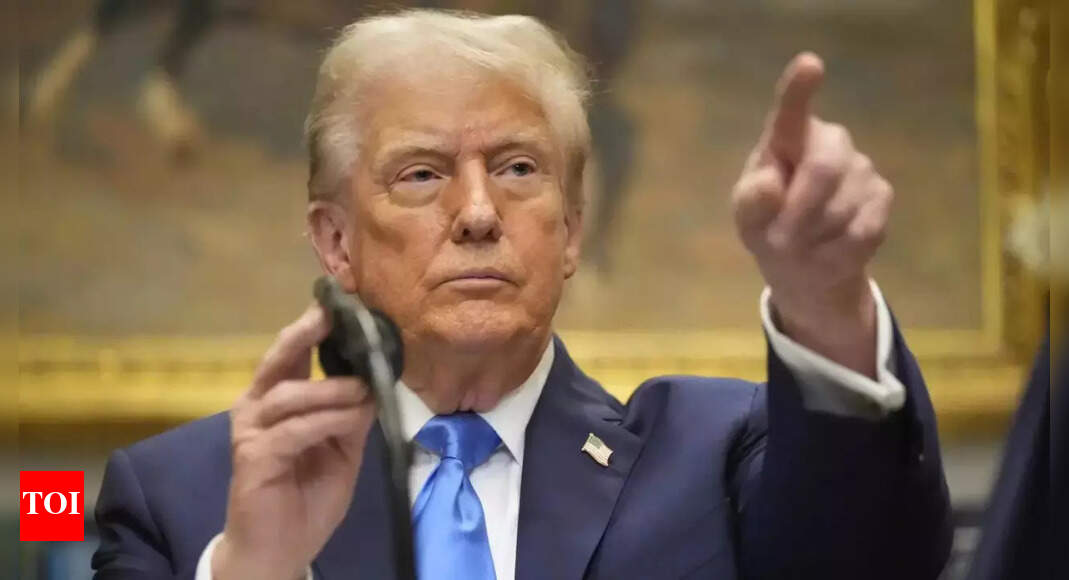Gor and Kapur take charge of India portfolio after Senate confirmation

The TOI correspondent from Washington: Nearly nine months into the Trump administration’s four-year term, the Republican-majority US Senate on Tuesday confirmed two nominees who will be engaging New Delhi at a time US-India ties are in a funk. Sergio Gor and Paul Kapur will have to navigate an impasse on tariffs and personalised business-driven diplomacy from the White House that has derailed its own strategic priorities in the first Trump term. Gor, Trump’s ambassadorial pick for India, and Kapur, the State Department’s choice to lead the South Asia bureau, were among the 107 nominees confirmed by the Senate in a single en bloc vote despite a government shutdown. Also confirmed by the vote was Indian-American Anjani Sinha as the US ambassador to Singapore. The Senate’s confirmation of Paul Kapur, a New-Delhi born Indian-American, sets the stage for a clash of vision within the Trump administration given his record as a vocal critic of Pakistan’s strategic use of Islamist militancy, he must now steer through a White House that, in recent months, has pursued a strikingly transactional and warm diplomatic approach with Islamabad, with commercial interests playing a key role. In his 2016 book, Jihad as Grand Strategy, Kapur argued that Pakistan’s use of militant proxies is not a sign of instability but a “deliberate state policy”—a cost-effective tool to challenge a conventionally superior India. He warned that this strategy has “outlived its utility,” creating a “serious risk of catastrophe” for Pakistan as militant groups become autonomous and turn on the state. He also critiqued Pakistani leaders who believe their nuclear arsenal provides a “national-security trump card,” emboldening their risky reliance on militancy.Yet, Kapur (and Gor, who is also special envoy to the region) are now charged with executing a policy that has seen Pakistan’s leadership actively court the White House with sketchy business deals, counter-China initiatives (like the Reko Diq mining project), and secure even-handed tariff agreements. Pakistani officials, desperate for US legitimacy and financial support, have been offering deals on critical minerals and positioning themselves as a key counter-terrorism partner, despite Islamabad’s dodgy record and Kapur’s own deep-seated skepticism toward its counter-terrorism claims.For Kapur, who has previously said that security cooperation with Pakistan should be only “where it is in America’s interest,” the core challenge will be whether he can get the State Department to maintain a tough, critical stance on militancy while supporting a policy driven by the White House’s transactional desires for short-term gains.While the new assistant secretary is a stern critic of Pakistan, he is a firm advocate for a strengthened US-India partnership, viewing New Delhi as an “essential US partner” in the context of countering China’s influence in the Indo-Pacific, a term the State Department and its boss Marco Rubio continues to embrace even as the White House has put it on a back-burner.Kapur’s background, including his past work on US-India relations in the Trump first term when he was in the policy planning division, suggests he will be inclined to pursue a strategy to “accelerate India’s rise” – so long as the White House greenlights it – though he has cautioned the partnership requires “careful management” to avoid “unmet expectations.” As things stand, the state department, with its traditionalist approach, and the White House, with its transactional mode, don’t seem to be on the same page, but no one is blind to who calls the shots.




